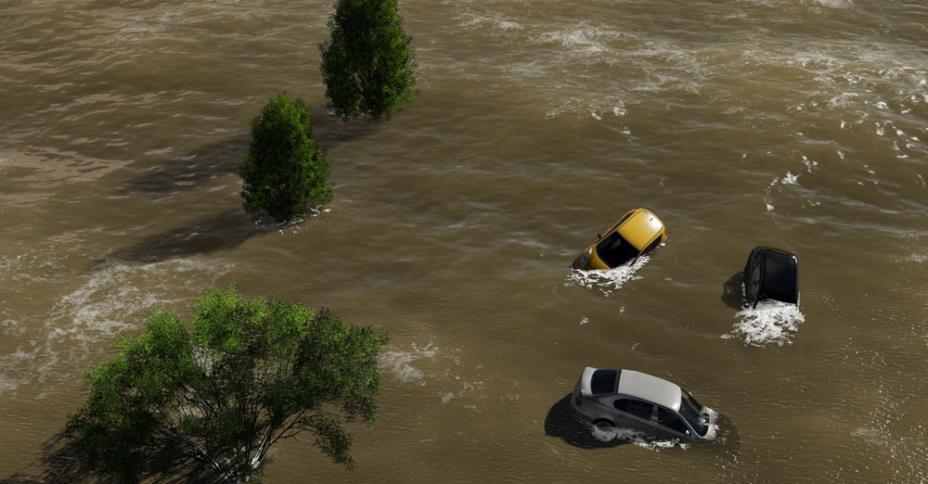News
The DANA, the COP29 and the CEOs’ letter
"Saddened by the effects of the DANA in Spain, and supporting all those affected, I hope that COP29 will serve to give a great boost to the fight against climate change."

“
In front of my screen, I am preparing to write an article about the COP29 that starts next 11th in Baku (Azerbaijan). I do it shocked and moved by the tragedy of the DANA (cut-off low) that has affected Spain. Particularly the Valencian Community and, to a lesser extent, Andalusia, Castilla La Mancha, especially in the province of Albacete, and the south of Catalonia.
I am overwhelmed with sadness for the people who have died (more than two hundred, a number that will increase as there are still dozens and dozens of people unaccounted for), for their families and friends. For those families who have also witnessed the destruction of their homes, businesses and cities. For the devastation of the Valencian Community. We are facing the greatest natural disaster in the history of Spain. But in addition to sadness, I feel anger that there are still irresponsible people who deny the effects of climate change and the need to prevent it.
Behind this DANA is undoubtedly the warming of the Mediterranean Sea as a great amplifier of its intensity and consequences. The rise in its temperature makes this type of phenomena more and more frequent and disastrous. The Mediterranean Sea is already a tinderbox, as are the hurricanes in the Caribbean or the recent floods in South America specifically mentioned by the COP29 leaders.
I can't avoid sharing my thoughts with you. For companies and their CEOs, no matter how big or small, people come first, despite the fact that there are some who think that our primary objective is to maximize profits. And if a company or a CEO fails to see it that way, they don't have much of a future.
The fight against climate change is a fight for everyone on the planet today and for all future generations. That is why I sincerely hope that COP29 will serve to give a strong boost to this great challenge that we all face.

Expectations for COP29 have been somewhat overshadowed by the current geopolitical situation in the world: Ukraine, Israel, Gaza, Lebanon, Iran... or the recent elections in the United States, which Trump has finally won, which may mean a change in its so far strong climate initiative and an increase in the already high existing trade tensions.
At COP28, held in Dubai last year, the 200 participating countries set a target of tripling renewable energy capacity by 2030. In its Annual Outlook Report, the IEA estimates a 2.7-fold increase in capacity between 2022 and 2030, which is below the COP28 target. However, it believes that a tripling is possible if governments use their capacity to act in the short term, which requires ‘bold plans’ (the recently adopted Spanish PNIEC is a good example of the ambition required).
This will require more international cooperation to reduce the high financial costs in developing regions such as Africa, the Caribbean, South America and Southeast Asia. It is necessary to avoid the gap that is emerging in the growth of renewables, as China will account for 60% of global renewable GW by 2030, which means a very asymmetric growth.
Therefore, the goal of COP29 is to “ensure fair financing, avoid a global average temperature increase above 1.5°C and ensure that no one is left behind”, as Mukhtar Babayev, President of the COP29, states.
This statement is reinforced by the words of Elnur Soltanov, Executive Director of COP29, who points out that “climate finance will be the key to this summit and the main priority of its Presidency will be to agree on a clear and ambitious ‘New Collective Quantified Goal’ (NCQG) that takes into account the needs of all parties”.
This financial goal seeks to support the poorest countries in their fight against climate change and, although it was agreed in 2015, it has not yet been established. It needs to be set before 2025, as a matter of urgency. An agreement that will not be easy to reach, as we saw at the last preparatory conference for Baku's COP29 held in Bonn, which ended with modest progress, as the UN Executive Secretary for Climate Change, Simon Stiell, warned at its closure.
“
"The goals remain achievable and I agree with him that there is still time to effectively address the climate crisis if immediate and sustained efforts are made."
“
On the other hand, I am surprised that the COP29 Chief Negotiator, Yalchin Rafiyev, states that committing to the 1.5º target is the main challenge. We should all be very, very clear about that by now.
Other issues to be discussed include the continued implementation of the Loss and Damage Response Fund, how to move forward on transparency tools, and progress on the new UAE work program and finalizing the rules for carbon market mechanisms.
I do not want to end this article without mentioning the letter from the Alliance of CEO Climate Leaders promoted by the World Economic Forum (WEF), that calls on governments and businesses to combine efforts and tackle the challenges because “every fraction of a degree counts”. If you have not read it, you can do so here: (CEO's letter).
It is a clear and rigorous reflection on the way forward. I believe its spirit should fly over and inspire the Baku Summit.
I end with a headline from an article by the British Elaine Mulcahy, Director of the UK Health Alliance on Climate Change: “COP29 must move from stalling to action”, which reminds me of the end of my speech at one of the summits I attended, COP27 in Egypt in 2022, where I said: “It is time to move to action. We must act, act and act”. Words must be brought even closer to reality. Since my first intervention at a Summit, COP21 in Paris in 2015, I have been insisting on the urgency.